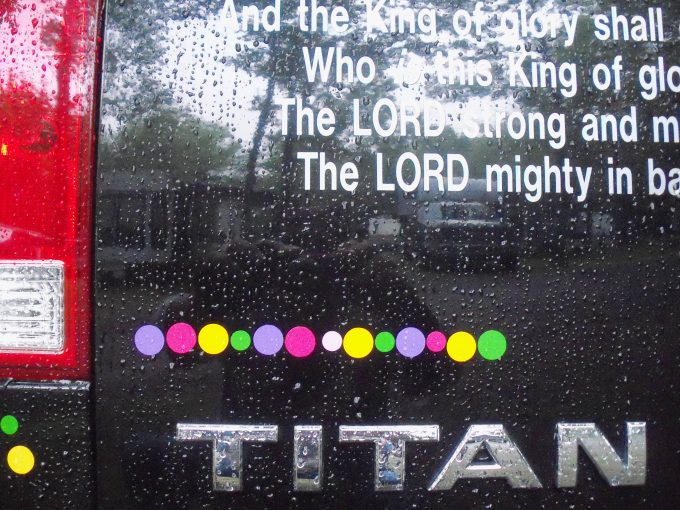
Wednesday, 21 December 2016
Nevertheless to remain in the flesh is more needful for you. Philippians 1:24
Paul has been expressing in writing his struggle between his desire to depart this life and be with Christ, and that of continuing on in this life in order to bear fruit for the gospel. It is as if his mental struggle will actually be determined by the words he writes. And in reality, this is the case. He is writing under inspiration of the Holy Spirit, and so one can see the duality of how Scripture comes about in his conflict. There is the carnal man who is thinking out his thoughts as a carnal man, unsure about what lies ahead, and revealing his own thoughts and desires. And then there is the inspired prophet of God who is being led, as if a ship directed by the wind through the power of the Holy Spirit.
The man’s thoughts remain his, and they are expressed clearly, and yet the Holy Spirit’s will is what takes precedence in order to bring us God’s word. Paul is not the only one where this is seen. Rather, throughout the Bible, we see exactly this occurring, time and time again. Even a cursory read through Isaiah, Daniel, Jeremiah, Habakkuk, or any of the other prophetic writings will show this to be the case. Because it is also true with Paul, he now writes the words of this verse, “Nevertheless to remain in the flesh is more needful for you.”
He had no idea which option to choose, but the Holy Spirit did. He wrote what he knew in his inner being because of the Spirit’s prompting. Despite the conflict, he yielded to the Spirit – “Nevertheless.” In so yielding, the oracle came through – he would “remain in the flesh.” This was what God had determined, and this is what would come to pass. He would not go to be with the Lord at this time, but rather he would remain in his earthly body. And the reason is that it was “more needful for” those he ministered to at Philippi and elsewhere.
This need was certainly 1) to ensure that all of the word of God which was to come from his pen would, in fact, come. And, 2) to ensure that those he had brought to Christ would be prepared for the time when he was no longer with them. This is seen, for example, in the words he spoke to those of the Ephesian church in Acts 20 –
“Therefore take heed to yourselves and to all the flock, among which the Holy Spirit has made you overseers, to shepherd the church of God which He purchased with His own blood. 29 For I know this, that after my departure savage wolves will come in among you, not sparing the flock. 30 Also from among yourselves men will rise up, speaking perverse things, to draw away the disciples after themselves. 31 Therefore watch, and remember that for three years I did not cease to warn everyone night and day with tears.” Acts 20:28-31
For these, and whatever other reasons, Paul was inspired to write the words of this verse. It should not be considered unusual that the Spirit impelled him in this way. As noted above, this type of dual working between the man and the Spirit is found throughout Scripture. If there was ever a conflict or misunderstanding between the two, the Spirit would prevail. Jeremiah shows us a marvelous example of this –
“‘“O Lord, You induced me, and I was persuaded;
You are stronger than I, and have prevailed.
I am in derision daily;
Everyone mocks me.
8 For when I spoke, I cried out;
I shouted, “Violence and plunder!”
Because the word of the Lord was made to me
A reproach and a derision daily.
9 Then I said, “I will not make mention of Him,
Nor speak anymore in His name.”
But His word was in my heart like a burning fire
Shut up in my bones;
I was weary of holding it back,
And I could not.”’” Jeremiah 20:7-9
Jeremiah strived against the word of the Lord, and the Spirit of God prevailed in the struggle. Paul was unsure of what would happen in his future, but the Spirit settled the matter with the word which he uttered and which was confirmed by the issue of ink from the pen held in the scribe’s hand.
Life application: We don’t know the future, but God does. Let us not worry about what lies ahead, but rather let us trust that His plan will unfold exactly as it should. God’s plan cannot be thwarted. As it is a good plan, let it come and have no fear as it does.
Lord God, we often struggle with what the future holds. It is scary at times because we don’t see the outcome of things that intimately concern us. But we are shown in Your word that You have a plan, a good plan, which is being worked out in the stream of time. As we (who have called on Jesus) are a part of the good end of that plan, then why should we be anxious at all? Your good plan for us cannot be thwarted, and so let us not look at the future with fear, but with a sense of relief! It is all in control according to Your wisdom. Hallelujah for such comfort. Amen.




